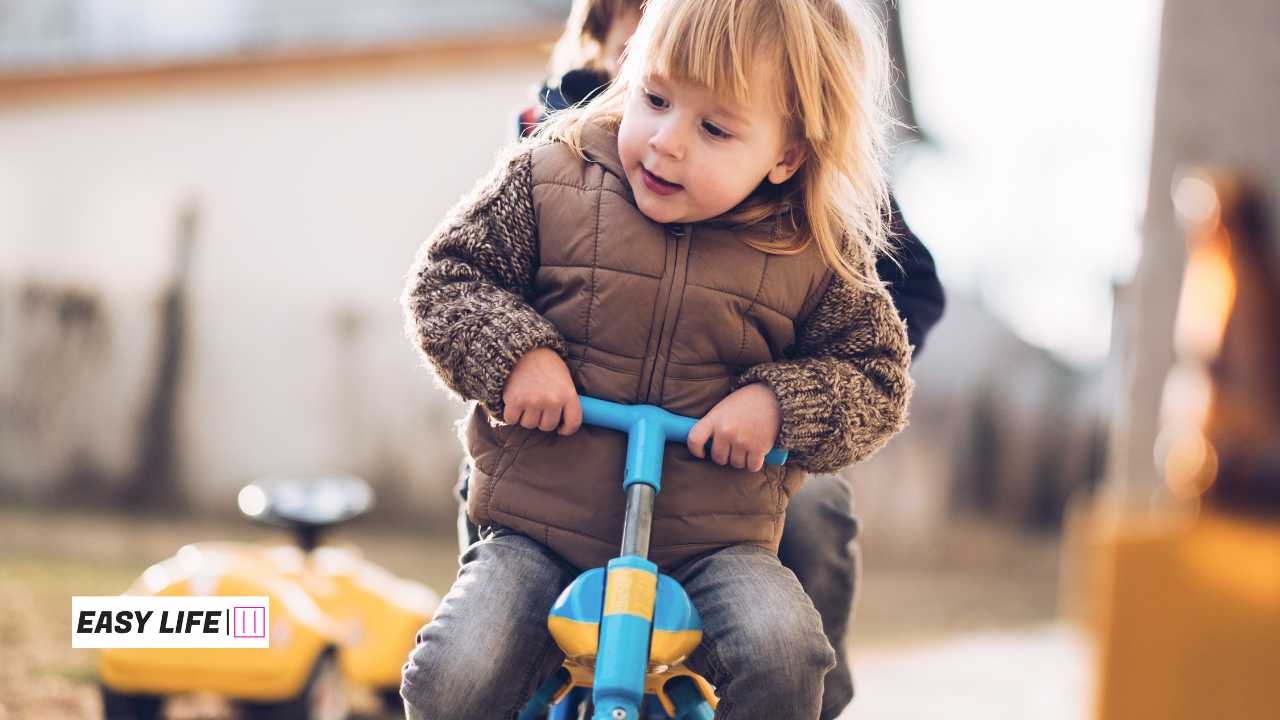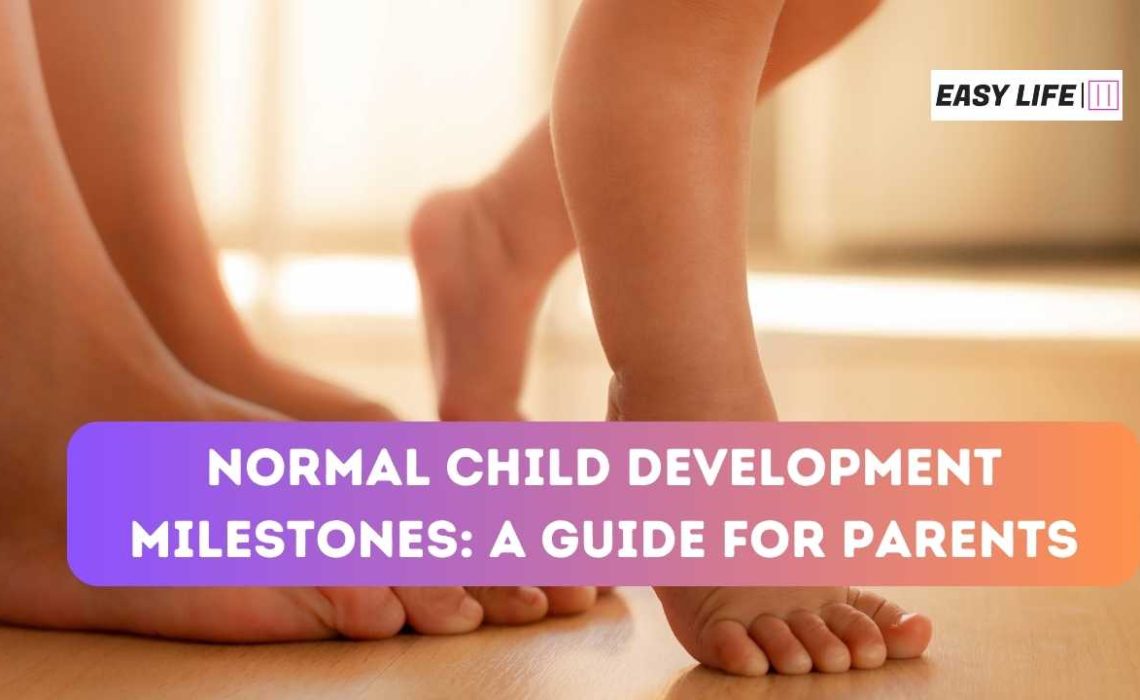Watching your child grow and develop is one of life’s most wonderful moments. But with so much information available, it’s normal to wonder if your child is meeting developmental milestones at the appropriate speed. This article will give you a comprehensive summary of typical child development milestones from birth to age five.
Table of Contents
ToggleWhat are developmental milestones?
Developmental milestones are the skills and abilities that most children acquire at specific ages. They are like markers along the path of child development, showing how your child is progressing in many areas, such as:
- Physical development: This encompasses general motor skills (crawling, walking, running) and fine motor skills (grasping, picking up small objects).
- Cognitive development: This includes things like thinking, learning, and problem-solving.
- Social and emotional development: This includes things like interacting with others, expressing emotions, and managing behavior.
- Communication development: This includes things like talking, understanding language, and using gestures to communicate.

Why are developmental milestones important?
Developmental milestones are significant because they allow you to monitor your child’s progress and identify any developmental delays. Early intervention is critical for children with developmental delays because it allows them to catch up with their peers and realise their full potential.
Please keep in mind that each child develops at their own pace, and there is no set definition of “normal.” The milestones listed below are only a basic guideline. If you have any worries regarding your child’s growth, speak with your paediatrician.
Developmental milestones by age:
Newborn to 3 months:
- Lifts head when lying on tummy
- Smiles at familiar faces
- Coos and gurgles
- Grasps objects
3 to 6 months:
- Rolls over from front to back and back to front
- Sits with support
- Reaches for and grasps objects
- Babbles with different sounds
6 to 9 months:
- Sits without support
- Transfers objects from hand to hand
- Puts objects in mouth
- Says “da da” or “ma ma”
9 to 12 months:
- Crawls
- Stands with support
- Says one or two words
- Waves “bye-bye”
12 to 18 months:
- Walks with support
- Climbs stairs
- Points to familiar objects
- Says several words
- Follows simple instructions
18 to 24 months:
- Walks without support
- Kicks a ball
- Scribbles with crayons
- Says two-word phrases
- Follows two-step instructions
24 to 36 months:
- Runs
- Jumps
- Draws circles and lines
- Says simple sentences
- Plays pretend
3 to 5 years:
- Rides a tricycle
- Dresses with some help
- Draws pictures of people
- Tells stories
- Plays with other children

What to do if you are concerned about your child’s development
If you are concerned about your child’s development, speak with your paediatrician. They can perform a developmental screening to see whether your child is on track. If your child has a developmental delay, your paediatrician may recommend you to a specialist for additional evaluation and treatment.
Here are some more tips to help your child’s development:
- Talk, sing, and read to your child often.
- Play with your child every day.
- Provide your child with plenty of opportunities to explore and learn.
- Create a safe and loving environment for your child to grow
Remember that each child is unique and develops at their own rate. If you have any worries regarding your child’s development, do not hesitate to consult your paediatrician. With your help and supervision, your child will realise their greatest potential.
Conclusion: Normal Child Development Milestones
Watching your child grow into a lively individual is a journey full of wonder and occasional fear. Understanding the typical range of child development milestones can help to soothe your concerns and guide your involvement in supporting their growth. While these milestones are useful, keep in mind that each child develops at his or her unique speed. If you suspect a delay or have any questions, contacting your paediatrician is always the best option. Accept the thrill of discovery, treasure the milestones achieved, and believe in your child’s unique path to becoming a happy, capable adult.
Additional points to consider for the conclusion:
- Briefly emphasise the necessity of prompt intervention if problems develop.
- Encourage a positive and supportive parenting style, with an emphasis on your child’s entire well-being.
- Express your hope for your child’s future and your belief in their abilities.
Feel free to select the option that best matches your intended tone and message.









